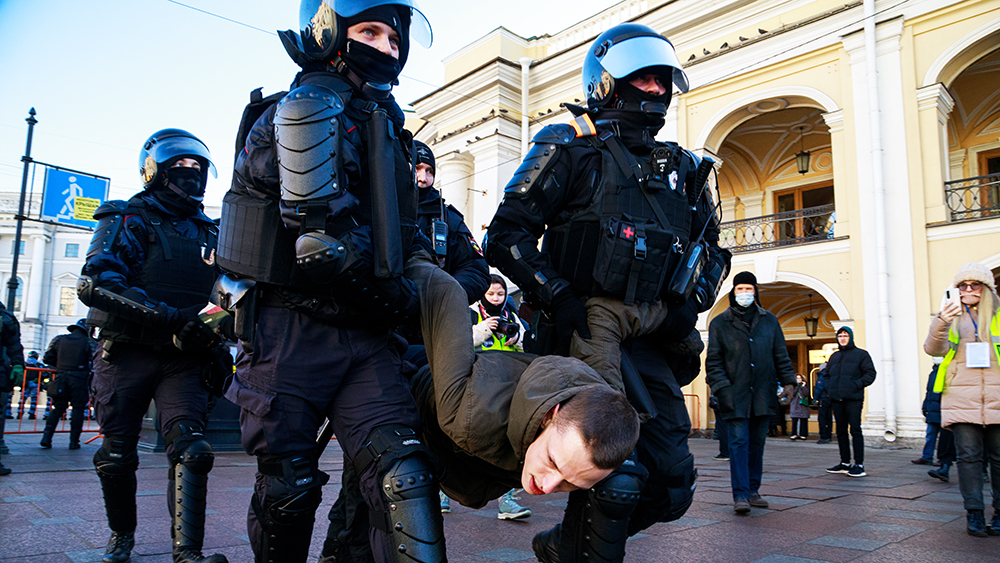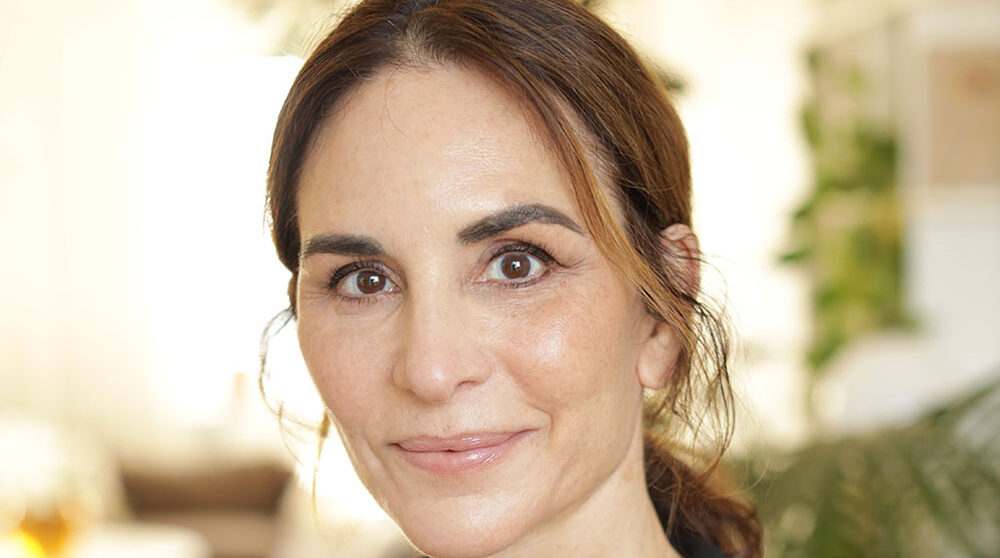All forms of resistance have been banned in Putin’s Russia. Since the start of the war against Ukraine, it is forbidden to hold up a blank white sheet of paper, call the war against Ukraine a war, or dance for peace. At the same time, organisations are banned from operating in Russia. We have examined which laws have been passed and what they effectively restrict.
In February 2022, the Russian organisation Memorial was shut down after being labelled an extremist organisation. Memorial was one of the three recipients of the 2022 Nobel Peace Prize and its closure followed a legal process.
Despite the fact that Russia is a de facto totalitarian state, the government wants to make it appear as if the regime’s repression has a legal basis. This is why the legal system is often referred to when activists are imprisoned or organisations are shut down. This goes back to the time of the Soviet Union when it was common for activists to be sentenced to psychiatric care, something that still happens today and has affected protesting artists, among others. At the same time, the Russian/Soviet system gives the accused the right to make a closing argument and these speeches, such as the one Navalny held, have the precondition of becoming historic.
We have previously described how the organisation Vesna was banned and how its activists were labelled as extremists. Since May 2022, it has been punishable to be a member of Vesna and it risks to be labelled a foreign agent thus forbidding anyone to give money to the organisation. Several of its members risk long prison sentences if they return to Russia. The Swedish organisation Anti-War Committee in Sweden – ”Russians against war” was declared undesirable in Russia in December last year, after having existed for only six months.
The regime uses various laws to prevent any opposition from organising. Last year, the Russian parliament, the Duma, tightened virtually all laws regulating news media and civil society in Russia. It is now virtually impossible to engage in any kind of organised activity that critizises Putin or the Russian regime. The laws banning any opposition are the following:
- Article 239 (organisations that may harm the rights of individuals).
- Foreign Agents.
- Extremist Organisations.
- Undesirable Organisations.
Article 239
In the late 1990’s, Article 239 was used against religious organisations that the state felt could harm Russian citizens. The law states that it is designed to protect ”the rights or identity of Russian individuals against organisations or associations that are considered to be able to harm the identity and rights of citizens”.
The law was first used against certain religious communities, such as Jehovah’s Witnesses, the Moon movement and others, but not against the opposition or Russian civil society.
In 2021, the state started using the law against political and civil activists for the first time. Russian opposition politician Alexei Navalny and his political organisation the Anti-Corruption Foundation were labelled as harmful to Russian individuals. A criminal case, based on Article 239, was used against Mr Navalny and his colleagues Leonid Volkov and Ivan Zhdanov. At the same time, Navalny’s organisation was declared an extremist organisation.
Later that year, the former coordinators of Navalny’s headquarters were indicted: Zakhar Sarapulov, Ksenia Fadeeva, Vadim Ostanin and Yegor Butakov. In April 2022, a case under Article 239 of the Criminal Code was opened against an activist from Arkhangelsk, Olga Shkolina, who was also accused of participation in an extremist organisation, because she, according to the Russian authorities, had worked as a volunteer at the local Navalny headquarters.
In 2022, the law was tightened and used against eight people, some of whom were activists with the democratic youth movement Vesna, which has been running an anti-war campaign in Russia even before Russia attacked Ukraine in February 2022. The others charged under the law were journalists and human rights activists whom the Russian authorities considered to be associated with Vesna. Some of them have left Russia. Those who remain risk up to two years in prison. They are accused of participating in a non-governmental organisation questioning civic obligations (fighting in Ukraine) and inciting illegal actions (protesting against the war).
Foreign Agents
In 2012, when Putin became president again, a law was introduced requiring organisations engaged in political activities and that receive foreign funding to register as foreign agents. While there had previously been restrictions on organisations, this made it clear that anyone with foreign funding who was acting to influence policy in Russia should be regarded as a foreign agent. The new law required any such organisation to write that they are a foreign agent in all their communications.
The law also states that it is the government that determines whether an organisation is engaged in political activity or engages in ”political acts” aimed at influencing the decision-making of public authorities, changing public policy or influencing public opinion on government policy. Anyone working to change for example the environment, improve health care, enhance sexual and reproductive health, propagate for same-sex marriage, improve the justice system and the respect for human rights risk being classified as a foreign agent.
”Extremist Organisations”
The Law on Combating Extremist Activities was adopted in July 2002 to combat terrorism. It was adopted in Russia at a time when many other countries were also tightening their legislation on terrorism. The law defines what constitutes extremist activity and includes hate crimes.
It excludes political parties, which are covered by previous guidelines in place before the law was introduced. It is widely used to combat organisations (registered or not) and mass media that the Russian state considers to be guilty of extremism.
In 2020, a Russian court found Russian journalist Svetlana Prokopyeva guilty of justifying terrorism. She was sentenced to pay a fine equivalent of almost € 7,000 for criticising the methods used by the Russian state in a radio programme and pointing out that these methods may have led to a terrorist attack on a building belonging to the Russian Security Service (FSB).
In June 2021, a Russian court ruled that Navalny’s organisation was an extremist organisation. In the same year, the law was used against the artists’ collective Pussy Riot. The artists had previously been prosecuted under the law banning hooliganism.
A year later the Russian authorities added Meta, the company that owns Facebook and Messenger, to the list of terrorist and extremist organisations. The two platforms were banned in Russia in March 2022 for allowing ”Russophobia”. Russia had demanded that Meta delete posts saying ”death to Russian invaders”, but Meta refused.
Undesirable Organisations
Already in 2015, a law was passed banning organisations that could be considered a threat to the Russian constitution, Russian defence interests or national security in general. The Undesirable Organisations Law was first used against US organisations and the first to be banned from operating in Russia was the National Endowment for Democracy (NED).
Today, more than 70 organisations are classified as undesirable in Russia. For example, Mikhail Khodorkovsky’s Open Russia project and Bellingcat are on the list of undesirable organisations. The register was updated in January 2023, when the popular independent media channel Meduza was declared undesirable in Russia.
Once an organisation has been classified as undesirable, their ability to operate in Russia is strictly limited. It is illegal to mention publications from undesirable organisations, share their articles or distribute or display their products.
A first-time offence is punishable by a fine of up to 15 000 roubles (€220). If a person repeatedly breaks the law, he or she risks up to four years in prison. Anyone who contributes money to an undesirable organisation risks imprisonment for up to five years.
Petter Bolme
Background
Russian authorities have banned Vesna and declared it an ”extremist organisation” that ”threatens Russian authorities and authorities”. Although the organisation is banned, many young people continue to fight the regime through their Telegram and Twitter channels. There are still activists left in Russia. All those who are featured in our publications are aware of the risk of visibility, but still want to share what happened to them.
You can also follow Vesna on Telegram or on Twitter. Both channels are in Russian but messages can be translated. They also have information on the web.
Also read:
Listen to:
|
Uppläsning av artikel
|


